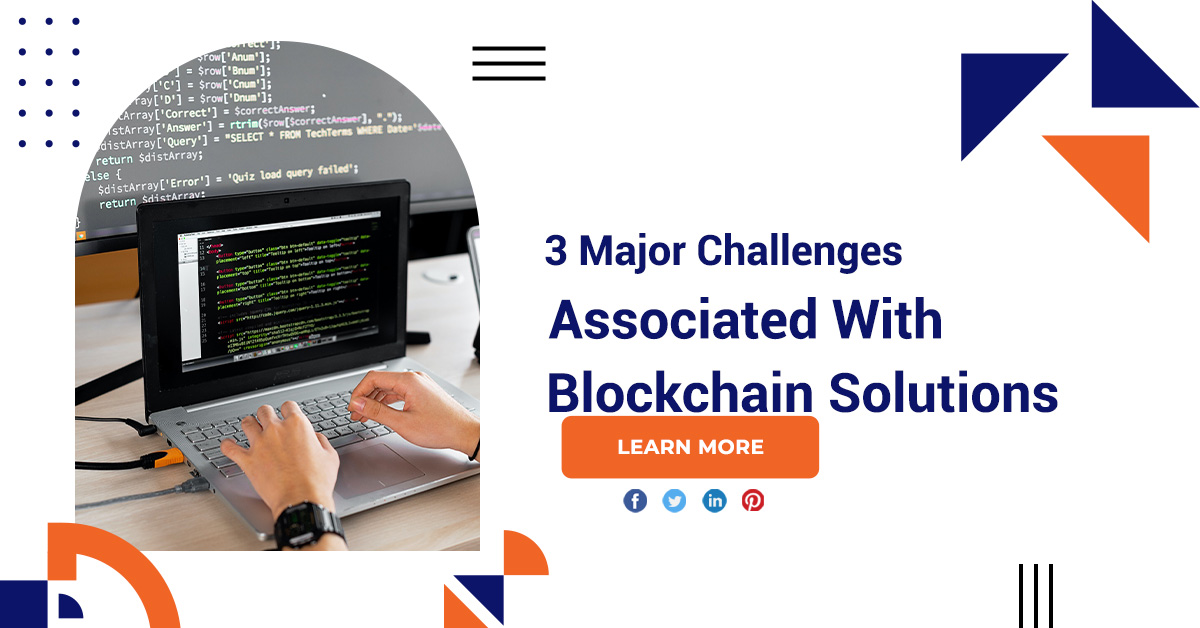3 Major Challenges Associated With Blockchain Solutions
Blockchain technology has been surrounded by a lot of hype, making many business leaders very interested in its adoption, but also concerned about the challenges and risks of blockchain. Blockchain refers to a peer-to-peer distributed ledger technology that can effectively record transactions between two parties in a verifiable and permanent manner, allowing tracking and traceability.
Blockchain solutions
Lack of adoption
Blockchains are ecosystems that require widespread adoption to function effectively. Organizations are increasingly coming together to form collaborative blockchain working groups to address common pain points and develop solutions that can benefit everyone without disclosing proprietary information.
Skills gap

The Blockchain Council reports that demand for blockchain engineers increased by more compared to the previous year, with base salaries for blockchain developers soaring. The cost and difficulty of acquiring talent in this area only increases organizations concerns about blockchain adoption and its integration with legacy systems. Users only need to know the basics of the technology and do not need to be programmers to enjoy its benefits. Similarly, users will need to understand how to execute smart but will not need specialized knowledge of the intricacies of distributed ledgers.
Trust between users

Lack of trust among blockchain users is the third major barrier to widespread implementation. This challenge is twofold: Organizations do not have to trust the security of the technology itself, and they do not have to trust other parties in the blockchain network.
Every transaction in the blockchain is considered secure, private and verified. This is true even though there is no central authority present to validate and verify transactions, as the network is decentralized. At the heart of every blockchain network are consensus algorithms that drive collective agreement on the current state of the distributed ledger for the entire network.
Conclusion
In developing the business case for adoption, blockchain proponents will need to convince their organizations to accept the kinds of risks, form the kinds of relationships, and make the kinds of trade-offs that are common in other areas of business.








Leave A Comment
You must be logged in to post a comment.